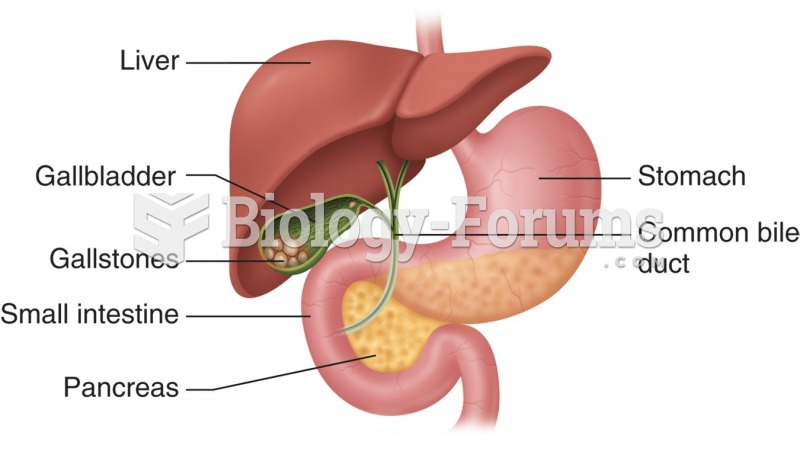|
|
|
Bisphosphonates were first developed in the nineteenth century. They were first investigated for use in disorders of bone metabolism in the 1960s. They are now used clinically for the treatment of osteoporosis, Paget's disease, bone metastasis, multiple myeloma, and other conditions that feature bone fragility.
The oldest recorded age was 122. Madame Jeanne Calment was born in France in 1875 and died in 1997. She was a vegetarian and loved olive oil, port wine, and chocolate.
Drug-induced pharmacodynamic effects manifested in older adults include drug-induced renal toxicity, which can be a major factor when these adults are experiencing other kidney problems.
Long-term mental and physical effects from substance abuse include: paranoia, psychosis, immune deficiencies, and organ damage.
In 2010, opiate painkllers, such as morphine, OxyContin®, and Vicodin®, were tied to almost 60% of drug overdose deaths.
 The frontal sinus, an airfilled space just behind the brow, is a unique size and shape in each of us
The frontal sinus, an airfilled space just behind the brow, is a unique size and shape in each of us
 These monolithic figures from Easter Island suggest the contemplative nature of philosophy, which ca
These monolithic figures from Easter Island suggest the contemplative nature of philosophy, which ca
 The opening of the throttle plate can be delayed as long as 30 milliseconds (0.030 sec) to allow ...
The opening of the throttle plate can be delayed as long as 30 milliseconds (0.030 sec) to allow ...




